Year 7
The science inquiry skills and science as a human endeavour strands are described across a two-year band. In their planning, schools and teachers refer to the expectations outlined in the achievement standard and also to the content of the science understanding strand for the relevant year level to ensure that these two strands are addressed over the two-year period. The three strands of the curriculum are interrelated and their content is taught in an integrated way. The order and detail in which the content descriptions are organised into teaching and learning programs are decisions to be made by the teacher.
Incorporating the key ideas of science
Over Years 7 to 10, students develop their understanding of microscopic and atomic structures; how systems at a range of scales are shaped by flows of energy and matter and interactions due to forces, and develop the ability to quantify changes and relative amounts.
In Year 7, students explore the diversity of life on Earth and continue to develop their understanding of the role of classification in ordering and organising information. They use and develop models such as food chains, food webs and the water cycle to represent and analyse the flow of energy and matter through ecosystems and explore the impact of changing components within these systems. They consider the interaction between multiple forces when explaining changes in an object's motion. They explore the notion of renewable and non-renewable resources and consider how this classification depends on the timescale considered. They investigate relationships in the Earth-sun-moon system and use models to predict and explain events. Students make accurate measurements and control variables to analyse relationships between system components. They explore and explain these relationships through appropriate representations and consider the role of science in decision making processes.
(source: www.australiancurriculum.edu.au)
Achievement Standard
By the end of Year 7, students describe techniques to separate pure substances from mixtures. They represent and predict the effects of unbalanced forces, including Earth’s gravity, on motion. They explain how the relative positions of Earth, the sun and moon affect phenomena on Earth. They analyse how the sustainable use of resources depends on the way they are formed and cycle through Earth systems. They predict the effect of human and environmental changes on interactions between organisms and classify and organise diverse organisms based on observable differences. Students describe situations where scientific knowledge from different science disciplines and diverse cultures has been used to solve a real-world problem. They explain possible implications of the solution for different groups in society.
Students identify questions that can be investigated scientifically. They plan fair experimental methods, identifying variables to be changed and measured. They select equipment that improves fairness and accuracy and describe how they considered safety. Students draw on evidence to support their conclusions. They summarise data from different sources, describe trends and refer to the quality of their data when suggesting improvements to their methods. They communicate their ideas, methods and findings using scientific language and appropriate representations.
(source: www.australiancurriculum.edu.au)
- Plus Plan
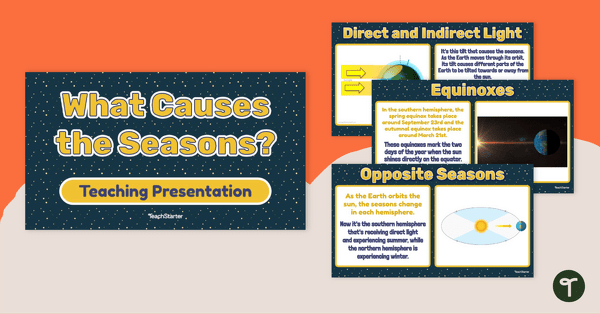
What Causes the Seasons to Change? – Teaching Presentation
Explore what causes the seasons to change and learn about solstices and equinoxes with this teaching presentation.
- Free Plan
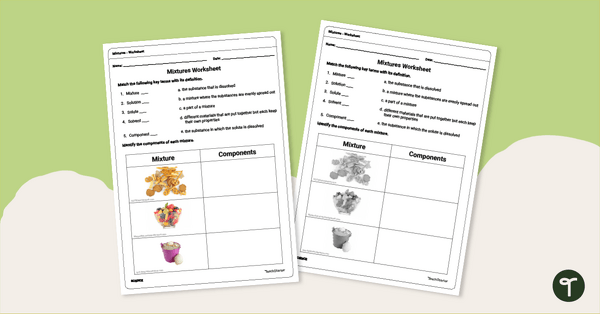
Mixtures Worksheet
Practise identifying mixtures and their components with a printable Mixtures Worksheet.
- Plus Plan
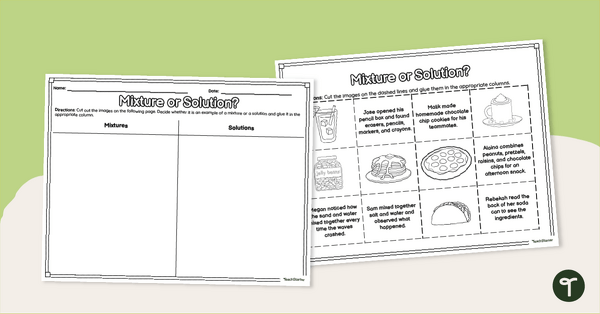
Mixture or Solution? – Cut & Paste Worksheet
Categorise substances according to if they are a mixture or a solution with this cut-and-paste worksheet.
- Free Plan
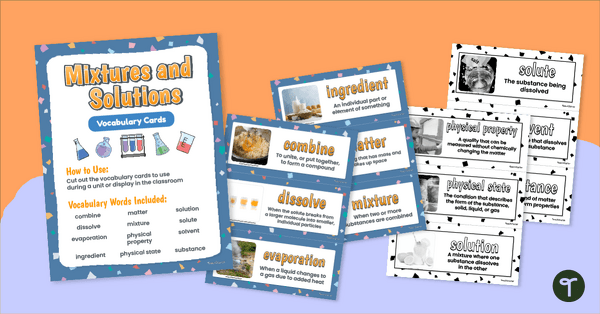
Mixtures & Solutions – Vocabulary Cards
Reinforce science vocabulary in your classroom with this set of word wall cards that focus on mixtures and solutions.
- Free Plan
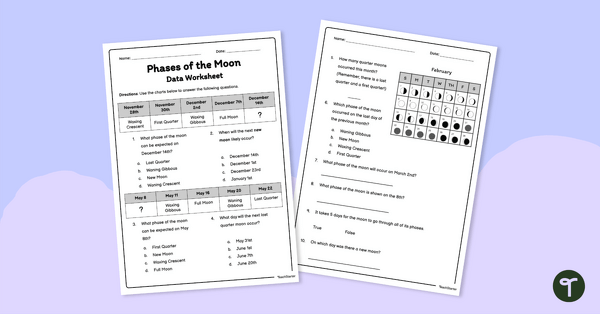
Phases of the Moon – Data Worksheet
- Free Plan
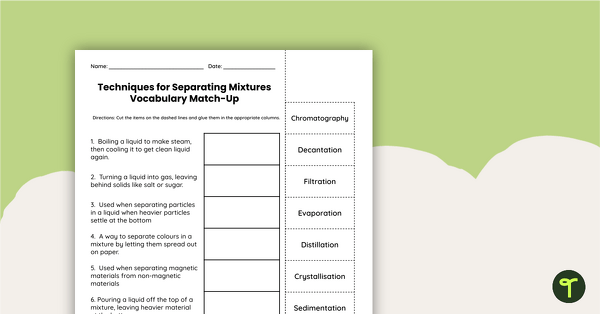
Mixture Separation Techniques Worksheet - Cut and Paste
Review the six techniques for mixture separation with a printable Separating Mixtures Vocabulary Worksheet.
- Plus Plan
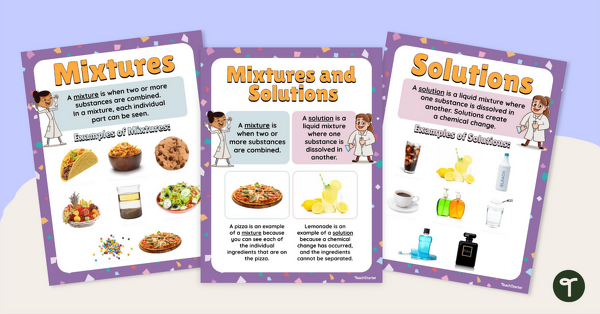
Mixture vs Solution Anchor Chart Pack
Display information about mixtures and solutions with this set of science posters.
- Plus Plan
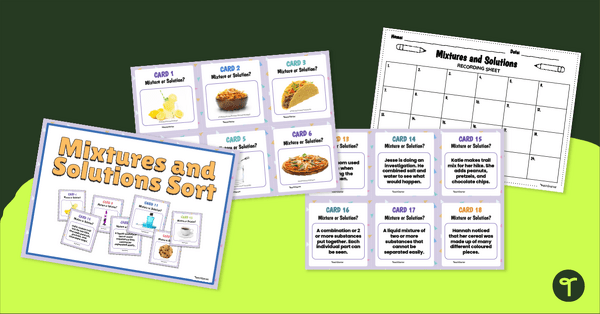
Mixtures and Solutions Sorting Activity
Distinguish between mixtures and solutions with this 24-card sorting activity.
- Free Plan
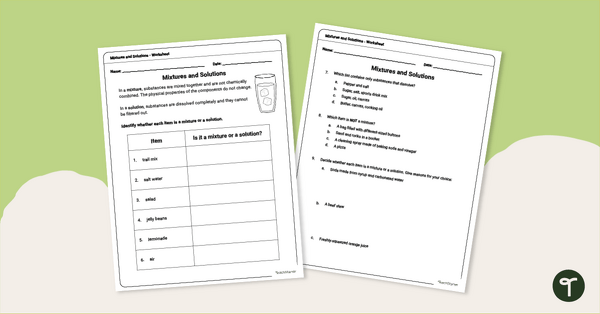
Mixtures and Solutions Worksheet
Identify the differences between a solution and a mixture with a printable Mixtures and Solutions worksheet for year 7.
- Plus Plan
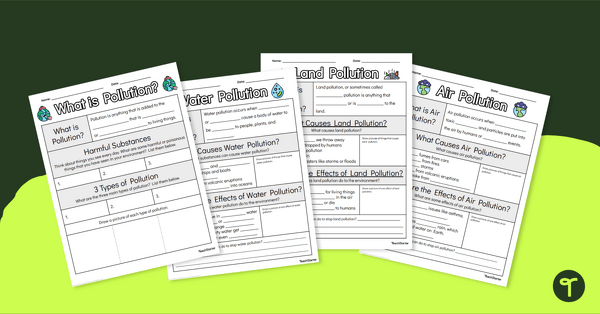
What is Pollution? Guided Note-Taking Worksheets
Provide your learners with an organised note-taking method with a pack of Pollution note-taking templates.
- Plus Plan
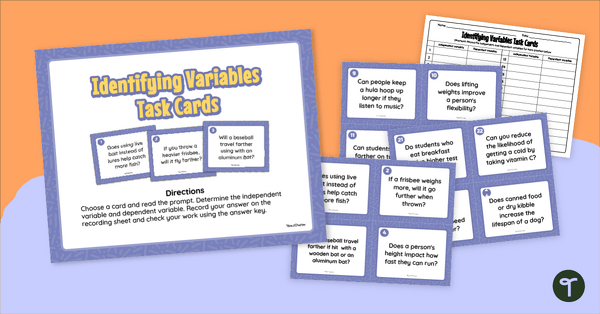
Independent Variable vs Dependent Variable Worksheet & Task Cards
- Plus Plan
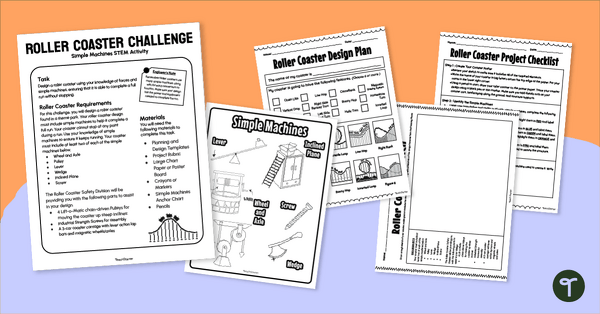
Simple Machines - Design a Roller Coaster STEM Challenge
Implement a Roller Coaster Stem Challenge to help your students demonstrate knowledge of simple machines.
- Plus Plan
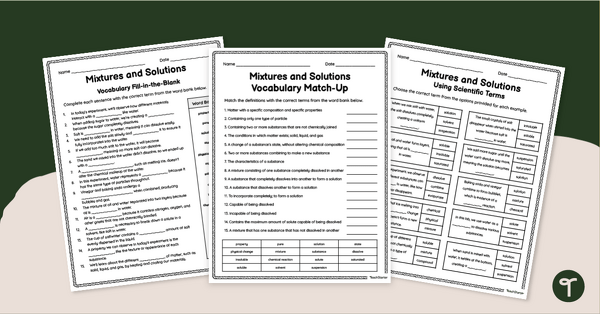
Mixtures and Solutions Worksheet Pack - Vocabulary Review
A vocabulary matching task relating to pure substances and mixtures.
- Plus Plan
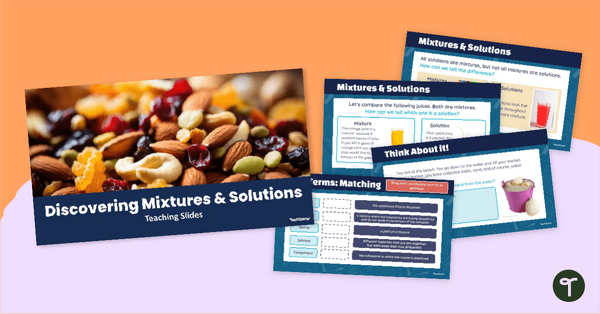
Solutions and Mixtures - Science PowerPoint
Explore solutions and mixtures with an engaging Classifying Matter Teaching Slide Deck.
- Plus Plan
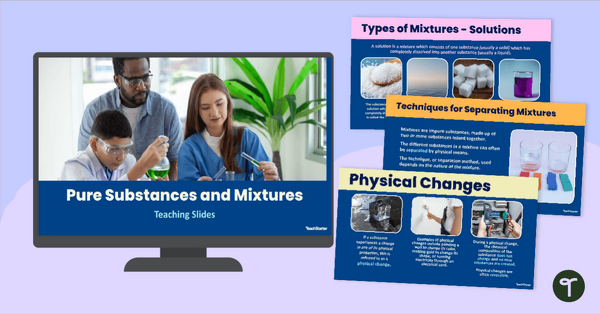
Pure Substances and Mixtures Science PowerPoint
Teach a chemistry unit on pure substances, mixtures and techniques for separating mixtures with an engaging interactive teaching slide deck.
- Plus Plan
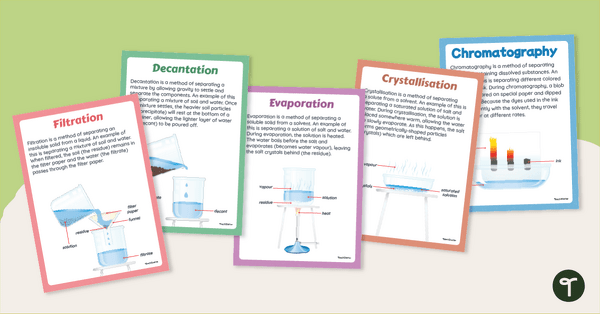
Separation Techniques – Separating Mixtures Posters
Identify common methods for separation of mixtures with our Separation Techniques Chemistry posters.
- Plus Plan
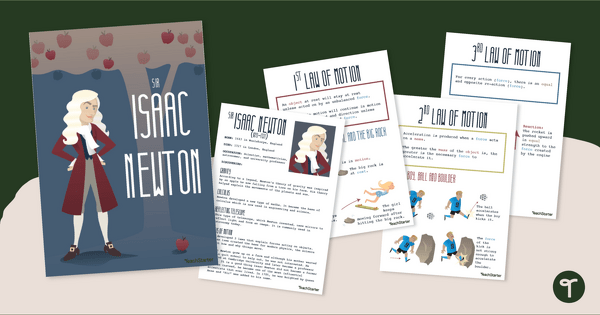
Isaac Newton's 3 Laws of Motion Anchor Charts
Learn about Isaac Newton and his 3 Laws of Motion with a set of printable anchor charts.
- Plus Plan
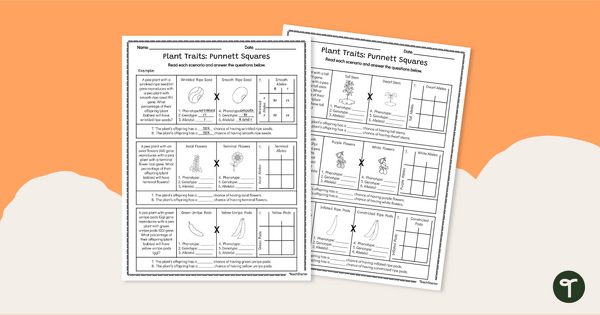
Punnett Square Worksheets
Predict the possible outcomes of combined traits of plants with a printable Punnett Square worksheet.
- Plus Plan
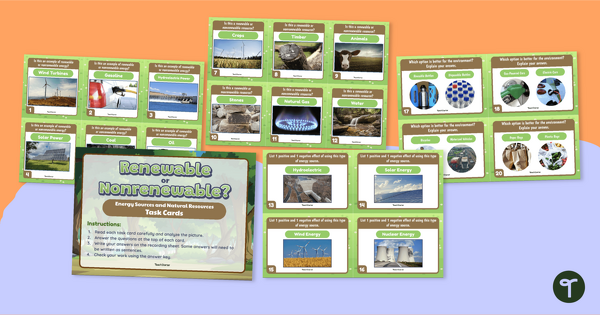
Renewable or Nonrenewable? Earth's Resources Task Cards
Identify natural resources and the types of renewable energy with 24 renewable and nonrenewable resource task cards.
- Plus Plan
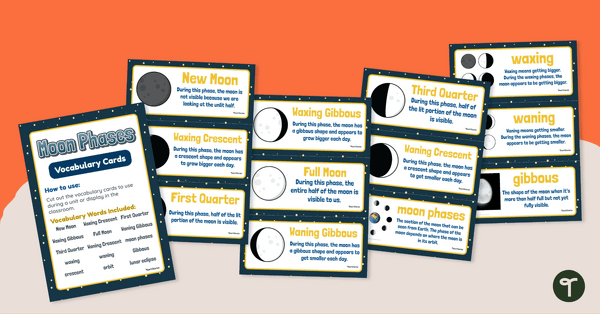
Moon Phases – Vocabulary Cards
Reinforce science vocabulary with a set of 15 vocabulary cards covering the different phases of the moon and related terms.